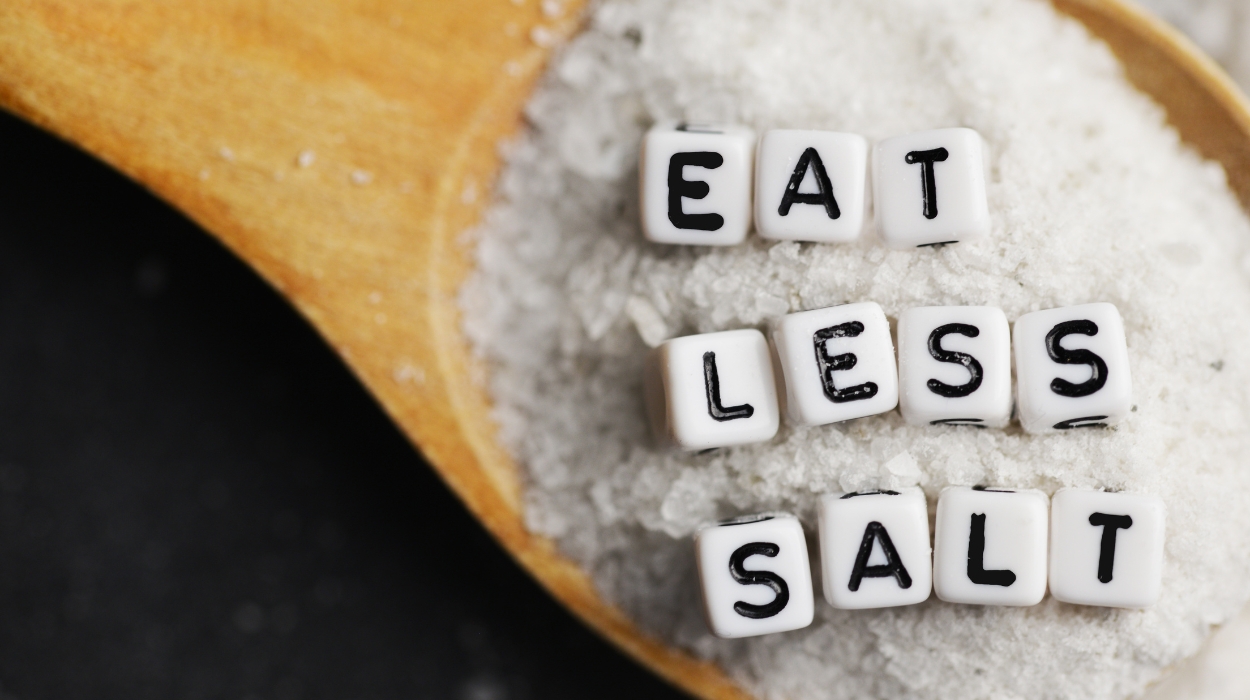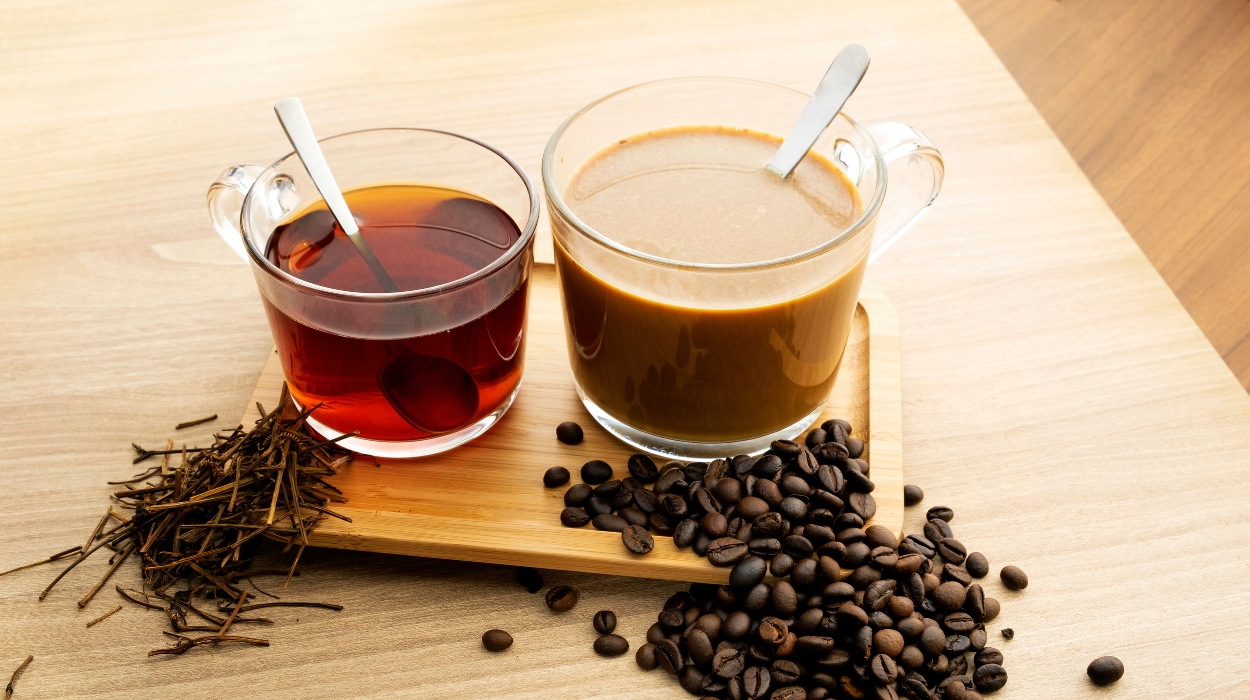 Expert's opinion
Expert's opinion
Expert's opinion
The article is a subjective view on this topic written by writers specializing in medical writing.
It may reflect on a personal journey surrounding struggles with an illness or medical condition, involve product comparisons, diet considerations, or other health-related opinions.
Although the view is entirely that of the writer, it is based on academic experiences and scientific research they have conducted; it is fact-checked by a team of degreed medical experts, and validated by sources attached to the article.
The numbers in parenthesis (1,2,3) will take you to clickable links to related scientific papers.
How To Lose Water Weight 2024: 5 Fast & Safe Ways To Get Rid Of It

Extra water weight can be a nuisance and can be lost quickly by exercise, medicine, and modifying our diet among other things.
Ever had a night out and the morning after a heavy meal you see you have gained a couple of pounds? Have you already started searching the internet for fat-burning diets and supplements?
Don’t worry, you could be just retaining water from that carb-laden meal, or maybe you had too much salt, and that caused you to gain a couple of pounds of weight that you can very easily shed away.
This sudden ticking up of the bathroom weight scale can be particularly irritating if you are on a calorie-deficient diet and looking to lose weight.
This article will discuss diets and foods for weight loss that help shed that excess water in your body. In addition, we will also discuss how to prevent this from happening in the first place.
How To Get Rid Of Water Weight: The Best 5 Tips
- Get On That Treadmill
- Go Easy On The Salt
- Diuretics (Water Pills)
- Limit Carbohydrate Intake
- Coffee
How to Lose Water Weight Fast: 5 Tips
Here is how to get rid of water weight in the belly:
Get On That Treadmill
Wondering how to lose water weight fast in a day? One of the fastest ways to get rid of excess water weight is by sweating it out. An average Joe can lose anywhere from 700 milliliters (ml) to 1200 ml of sweat[1] during one hour of exercise.
The rate and volume of loss may be lower or higher depending upon many other environmental factors like the intensity of exercise, temperature, and humidity of the environment, and the individual’s metabolic profile, among many other things.
This means that you can lose up to two pounds of excess water weight just by exercising. You have to take care not to dehydrate yourself and have enough water intake. I know this might seem counterintuitive, but dehydration can cause water retention.
Sweating is not the only way by which exercise helps the body lose water. An old study on American soldiers showed that around 200 ml to 1500 ml of excess fluid could be lost from the lungs during breathing, depending on personal and environmental factors.
Doing exercise regularly will help you prevent and reduce water retention and keep you from looking puffy.
Go Easy On The Salt

Do you have an event tomorrow, and you are wondering how to lose water weight in 24 hours or how to lose water weight overnight, so you aren’t puffy tomorrow?
Cutting out salty foods might help you with water retention and the ability to lose water weight quickly. Salty foods that are high in sodium are known to cause excess water retention.
One of the main ways our body regulates our water balance is by detecting the amount of sodium and electrolytes in our blood when it passes through the kidneys.
If the human body detects that the osmolarity of the blood is increased, it releases the antidiuretic hormone[2] which tells the kidneys to produce low-volume and concentrated urine to maintain proper fluid balance, thus, causing water retention.
Even small amounts of excess salt (sodium) can cause considerable water retention. One gram of salt contains 400 milligrams (mg) of sodium. The recommended dietary allowance (RDA) for sodium[3] is 2300 mg daily.
This means that we should only consume 6 grams of table salt (sodium chloride) a day if our diet has no additional source of sodium (which is very unlikely).
Processed foods that have preservatives added to them are also high in sodium. According to the Centers for Disease Control, Americans consume roughly 3,400 mg of sodium daily. That is more than 1,100 mg over the recommended dietary allowance!
This not only increases excess water retention by affecting the water balance but can also lead to high blood pressure in certain individuals.
Diuretics (Water Pills)
If you are searching “how to lose water weight in minutes?” on Google and if an extra trip or two to the urinal doesn’t bother you, water pills, or diuretics, might be the thing for you.
Diuretics are a class of medication that increases the frequency and volume of urination by various mechanisms. Their onset can vary from minutes to hours depending upon the type of diuretic given. They can help you counter water retention and flush the excess sodium from your body.
You might have seen your bodybuilder friend take these over-the-counter diuretics when nearing a competition. Models frequently use it before an important photoshoot or ramp walk.
You can take diuretics to lose water weight. Still, we would advise you that you should consult a doctor or a sports physician before starting to use diuretics as they have side effects like fatigue, thirst, and dehydration. They can also cause loss of essential minerals and electrolytes from the blood, like potassium and calcium.[4]
Limit Carbohydrate Intake
There is a wedding a week from now, and you are asking yourself how to lose water weight fast in a week. Well, we all wish we could wish the bloat away. But the truth is far from our fantasies. We might have to cut down on our favorite pastries and muffins to lose excess water weight and prevent fluid retention.
Carbohydrates are broken down to glucose. The body uses the glucose it needs and stores the rest in the form of glycogen, and therein lies the problem. A study[5] shows that for every 1000 mg of carbohydrates stored in the form of glycogen, water retention of up to 4000 mg can occur.
In a study done by H. B. Affarah and others, it has been shown that a high carbohydrate diet[6] temporarily causes sodium retention, which is reversed by the human body’s negative feedback mechanism in a week or so. Thus, low-carb diets[7] help us lose a significant amount of water weight.
Limiting carbohydrates (carbs) to recommended dietary allowances[8] of 520 calories (130 grams) per day or cutting down carbohydrates even further can help us battle fluid retention and water weight gain. Also, some fat-burning exercises and diets might lead to overall reduced water weight.
Coffee

Coffee is a double-edged sword with the capability of doing us both harm and good. As it turns out, coffee has a mild diuretic effect. Caffeine-rich drinks like coffee and tea cause us to urinate more often and help us prevent water weight gain.
Having a cup of black coffee early in the morning stimulates the kidney to produce urine by increasing the blood flow to the kidneys.
The mild diuretic effect[9] of coffee doesn’t last forever, though. It is significant only in those individuals who haven’t been exposed to caffeine too often.
So if you don’t regularly drink coffee and tea, this might just be the option for losing excess body weight due to excess water.
What Is Water Weight?
Total body water[10] makes up 50 to 60 % of the weight of our body. Depending upon age, gender, and environment, there might be slight variation in this. This water is in three compartments: inside the blood vessels (intravascular), inside the cells (intracellular), and outside the cells but the vessels as well (interstitial).
Puffiness or bloating is caused by water accumulation in the interstitial compartment. Any water above the range mentioned previously that causes visible swelling is excess water weight.
Causes Of Water Weight
Diet, Medicine, And Health Conditions
Eating salty foods (or foods that contain too much sodium) and sleep deprivation among other things, can cause increased water weight.
Certain medications, such as vasopressin (antidiuretic hormone), muscle relaxers, Naprosyn, niacin, and lovastatin, among others, might also be culprits.
Menstrual Cycle
Fluctuating hormones during women’s periods are also a notorious reason for weight fluctuations. Oscillating estradiol and progesterone[11] levels only have a mild effect on total body water, but they affect the interstitial fluid and might cause puffiness and bloatedness, dark circles under the eyes, sore or swollen breasts, and abdominal discomfort.
Weight fluctuations during the menstrual cycle may be one to three pounds daily, a significant amount of weight.
Perimenopause
Perimenopausal[12] women also have increased estrogen levels in their bodies. Estrogen causes sodium and water retention, whereas progesterone, a natural diuretic, is decreased. These women could benefit from hormone replacement therapy.
Sleep Deprivation
If you are a night owl and you are not getting adequate good quality sleep, that might also be the reason for being puffy in the morning. Adults should be getting seven to nine hours[13] of sleep every night.
Pathological Disease
Compromised kidney or heart failure might also be the reason for increased water retention, but that doesn’t necessarily mean that you have heart failure because you woke up with a puffy face. We will discuss this in a subsequent section.
How Much Water Weight Can You Lose?
When you step on a scale and see that you have gained weight of one to three pounds overnight after a heavy meal, it is not fat gain, it’s just water weight. You can stand to lose roughly the same amount from physical activity and water weight management.
Knowing exactly how much water one can safely lose is a bit tricky. A healthy male adult has approximately 42 liters of water in his body. Approximately 10.5 liters (25% of total body water) of this is present in the interstitial space.
It is safe to stay around the aforementioned mark of 42 liters in a male adult. Losing too much water and excessively limiting fluid intake can lead to dangerous dehydration. If you stick to a safe weight loss of one to two pounds per week, you will not lose too much body fluids.
How Long Does It Take To Lose Water Weight?
The time that it takes to reduce water retention and lose water weight depends on its cause. If you are retaining water due to dehydration and increased salt intake, then the solution is quick and can be as simple as taking salt as per dietary reference intakes or drinking more water.
However, the problem can be more complex also, as evidenced by fluid retention due to hormonal changes, in which case it can take weeks.
When To Seek Medical Attention?
When the puffiness gets excessive, and there is swelling (edema), particularly in the dependent regions of the body, you better consult a doctor. If you start feeling short of breath and hear crackles during your breathing, go to the emergency room as soon as possible!
Edema (excessive swelling due to water retention), especially in hands and feet is a worrisome sign, one that your doctor should have a look at as it might signify heart failure or kidney disease among other things.
Don’t worry, you probably don’t have heart failure because you woke up with a puffy face. There are a lot of other associated symptoms when serious medical conditions like heart failure develop. Just go to the doctor if you notice anything of concern.
Summary
There are multiple ways to lose weight gain due to water. Choose the method that is suitable and safe for you.
Reduce salt and sodium intake, cut down on carbohydrates, have an occasional cup of coffee, and get adequate good quality sleep. Do all of the above, and you are guaranteed to say bye-bye to bloat.
Just be mindful of any bloating and water weight gain due to edema, which is pathological and usually has a serious underlying cause. If you are doubtful, make sure you visit your doctor.
+ 13 sources
Health Canal avoids using tertiary references. We have strict sourcing guidelines and rely on peer-reviewed studies, academic researches from medical associations and institutions. To ensure the accuracy of articles in Health Canal, you can read more about the editorial process here
- US), M. and Marriott, B.M. (2022). Water Requirements During Exercise in the Heat. [online] Nih.gov. Available at: https://www.ncbi.nlm.nih.gov/books/NBK236237/
- Sladek, C.D. and Johnson, A.K. (2013). Integration of thermal and osmotic regulation of water homeostasis: the role of TRPV channels. American Journal of Physiology-Regulatory, Integrative and Comparative Physiology, [online] 305(7), pp.R669–R678. doi:10.1152/ajpregu.00270.2013.
- Center (2022). Sodium in Your Diet. [online] U.S. Food and Drug Administration. Available at: https://www.fda.gov/food/nutrition-education-resources-materials/sodium-your-diet
- cvpharmacology.com. (n.d.). CV Pharmacology | Diuretics. [online] Available at: https://cvpharmacology.com/diuretic/diuretics.
- Fernández-Elías, V.E., Ortega, J.F., Nelson, R.K. and Mora-Rodriguez, R. (2015). Relationship between muscle water and glycogen recovery after prolonged exercise in the heat in humans. European Journal of Applied Physiology, [online] 115(9), pp.1919–1926. doi:10.1007/s00421-015-3175-z.
- Affarah, H.B., Hall, W.D., Heymsfield, S.B., Kutner, M., Wells, J.O. and Tuttle, E.P. (1986). High-carbohydrate diet: antinatriuretic and blood pressure response in normal men. The American Journal of Clinical Nutrition, [online] 44(3), pp.341–348. doi:10.1093/ajcn/44.3.341.
- Rabast, U., Vornberger, K.H. and Ehl, M. (1981). Loss of Weight, Sodium and Water in Obese Persons Consuming a High- or Low-Carbohydrate Diet. Annals of Nutrition and Metabolism, [online] 25(6), pp.341–349. doi:10.1159/000176515.
- FSHN14-03/FS243: Facts about Carbohydrate. (2020). Ufl.edu. [online] doi:”,.
- Maughan, R.J. and Griffin, J. (2003). Caffeine ingestion and fluid balance: a review. Journal of Human Nutrition and Dietetics, [online] 16(6), pp.411–420. doi:10.1046/j.1365-277x.2003.00477.x.
- Tobias, A., Ballard, B.D. and Mohiuddin, S.S. (2021). Physiology, Water Balance. [online] Nih.gov. Available at: https://www.ncbi.nlm.nih.gov/books/NBK541059/
- Stachenfeld, N.S. (2008). Sex Hormone Effects on Body Fluid Regulation. Exercise and Sport Sciences Reviews, [online] 36(3), pp.152–159. doi:10.1097/jes.0b013e31817be928.
- Stachenfeld, N.S. (2014). Hormonal Changes During Menopause and the Impact on Fluid Regulation. Reproductive Sciences, [online] 21(5), pp.555–561. doi:10.1177/1933719113518992.
- NHLBI, NIH. (2022). How Much Sleep Is Enough? [online] Available at: https://www.nhlbi.nih.gov/health/sleep/how-much-sleep [Accessed 17 Jul. 2023].



